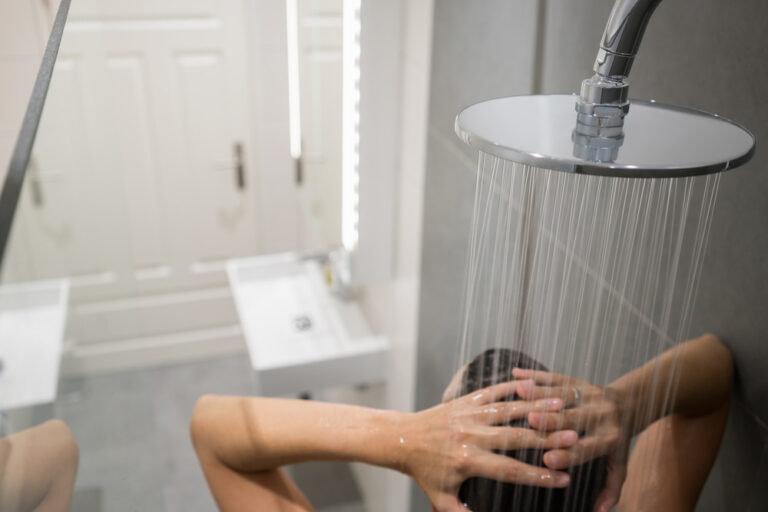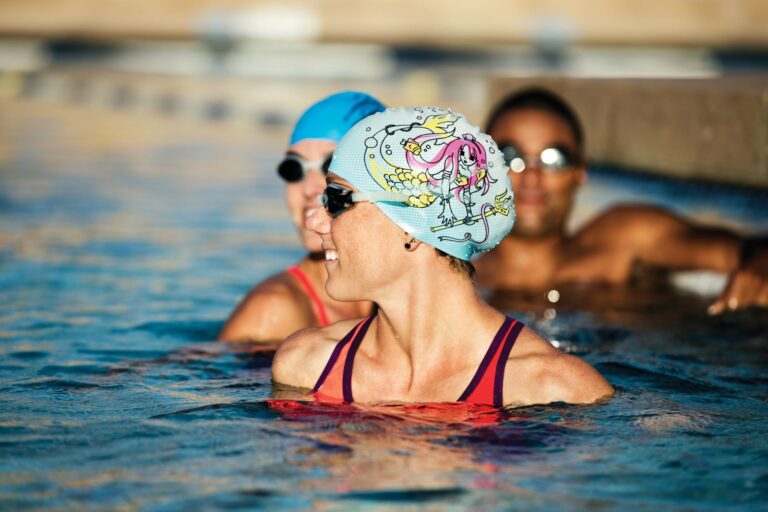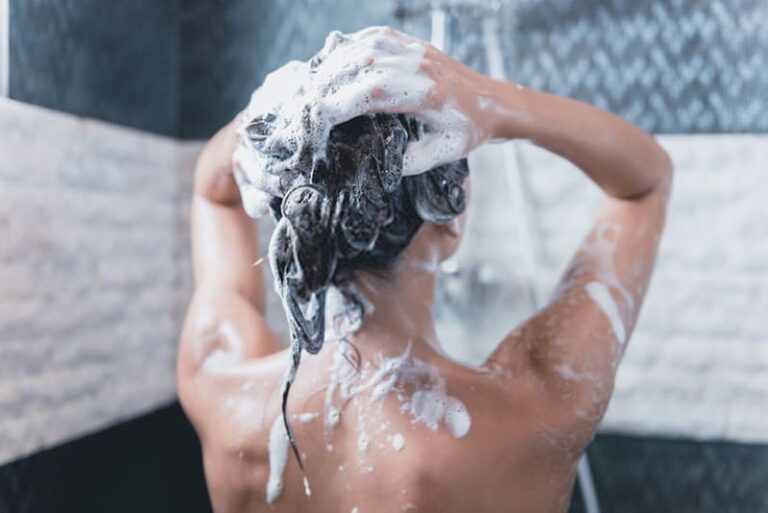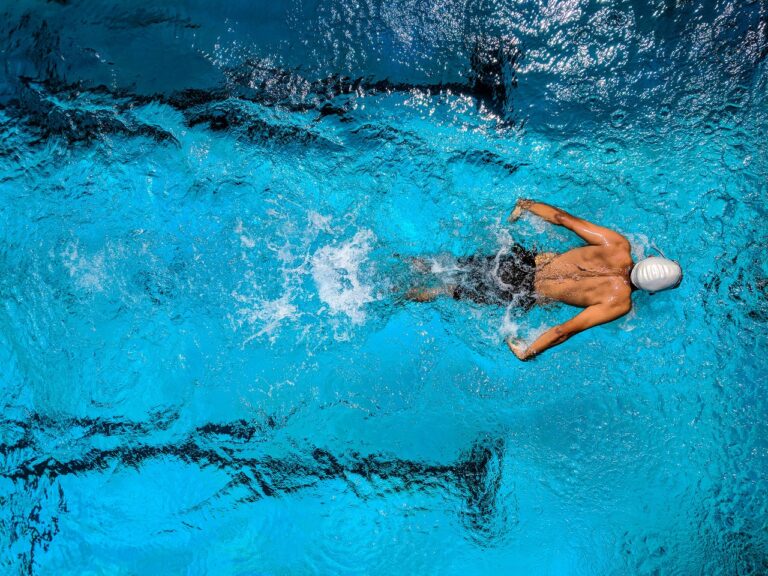Fun in the summer sun can affect the color-coded locks. Hot days require cooling in the pool, but strong chlorine can severely damage the health and color of your hair. Monthly visits to the salon for color touch ups can be expensive, and you don’t want your hair to be damaged once you get the best shade. But don’t miss the pool days because you’re afraid to mess up your treated traces. Before, during and after swimming, go for sunscreen with these tips to protect your hair, and go to the pool deck.
Contents
Before The Swimming
Wash your hair with Fresh cold water before going to the pool. Wet hair is less likely to absorb as much chlorine as dry hair. Treat your hair with special products to prevent damage. Try chlorine-fighting products, on websites such as trihard.co, that will protect hair from harsh pool chemicals. It is also important to choose the right product based on your hair type and problems. The best solution is to use a whole line of products with biotin and collagen.
Wash Your Hair With Shampoo Before Swimming

This is a question that most regular swimmers have in mind. We all know that water contains chlorine along with other chemicals. Regardless of our swimming caps, we can’t completely protect our hair from pool water. So, what should you do?
Experts suggest that it is best to wash your hair before using the swimming pool. Because if left unwashed, the chemicals in the pool will get stuck in your hair and cause havoc.
Otherwise, they will dry your hair. So, shampoo will prevent our hair from getting damaged by swimming pool water. However, washing it daily may also not be the best thing to do as your hair will start losing moisture. So, obtain a targeted shampoo that removes gas from your hair and cleanses your scalp additionally because the hair.
During The Swimming
Wear a swim cap in the pool. Not only will it protect your hair, but it will also keep hair out of your face while swimming laps. Wearing your hair up in a bun will also keep it from absorbing too much chlorine.
The Benefits Of Wearing A Swimming Cap

- Provides a smooth surface for your glasses to stick to
- Helps you see more in the water
- Helps protect your hair.
- Swimming cap also helps to keep the head warm in cold water
- Filters help protect our water and filtration system by minimizing hair loss
After The Swimming
Immediately after leaving the pool, wash your hair with cold water, and brush with a wide-toothed comb.
Wash your hair with a cleansing shampoo to remove long lasting chlorine from the hair.
Hydrate, hydrate, hydrate. Hair after swimming can be dry, brittle and weak. Condition your hair deeply to replenish its lost nutrients and rehydrate your locks. Shampoo may be a silent savior that works overtime after we square measure too busy hopping within the shower. If it does its job properly, you can be refreshed from the salon as easily as you can on the third day of hair. There is no one wiser than this. However, not all Shampoos are made uniformly. Some do not actually get rid of the oily roots, while others leave white, chalky residues that are invasive to the eye and touch. Some unfortunate people smell more like your grandmother’s sofa than a bouquet of flowers. Ideally, you would like to obviate flatness within the roots, say adios to grease, and appearance higher than before. a true cleansing. That’s the ametria Shampoo is another good way to revive wetness and enhance shine.
Choose A Chlorine Removal Shampoo

Chlorine removes natural oils from your skin and hair, causing it to dry out.
Chlorine causes a chemical process together with your hair, weakens it, and causes breakage and hair loss.
Chlorine increases the dullness of hair colors, so you need to dye your hair more often. Chlorine is used in swimming pools to kill unwanted bacteria and to protect swimmers from waterborne infections and diseases. Although swimming pools do not contain enough chlorine to cause permanent damage, it can dry out your hair and irritate and redden your skin. So, remember if you use the shampoo notice how it is at removing chlorine and heavy metals.
How Good Does It smell?
The main reason for adding fragrance to hair shampoo is to give the product a good fragrance that consumers will like. Fragrances can also be listed on your shampoo label as “perfume”. Fragrance is additionally added to hair care products to mask the odor of certain substances utilized in the assembly method.
Find a shampoo that smells great when you take a bath and has a wonderful fragrance in your hair so that it stays fragrant all day long. When it comes to shampoo, every store has a buffet full of different products to choose from. Some offer all the promise of shine, others hydration, and cleanliness.
With such long lists full of difficult-to-pronounce ingredients, it’s hard to know what you’re really doing with your hair. It is important to know the ingredients from which you are washing your locks, especially when some may cause irritation or accumulation. Whether you have curly, dyed, straight or oily hair, there is a lot to wrap around your head.
Dyed Hair Turns Green

One of the most important misconceptions concerning this subject is that the element makes hair inexperienced. The reason why bleached blonde hair or natural blonde hair is inexperienced is that once there’s copper within the water, the hair absorbs it so the element within the water causes a reaction of copper that shortens the hair fibers.
Oxidation damages and therefore offers it an inexperienced color. The presence of copper in swimming bath water is because of corrosion of copper plumbing or copper salts getting into the lake as algae. It is typically believed that shampooing will take away inexperienced color, however, only a few studies have shown a link between shampooing and hair removal.
















